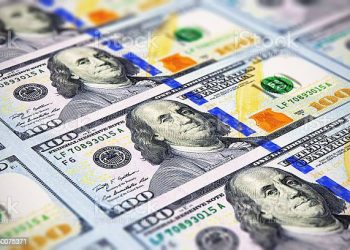In the aftermath of Nigeria’s apex bank, the Central Bank of Nigeria (CBN), executing the naira’s float and liberalizing the foreign exchange market, the country’s foreign reserves have witnessed a $915 million decline. The monetary shift, which unfolded on June 14, 2023, led to an alteration in the naira’s value and left a mark on Nigeria’s foreign reserves.
According to data freshly released by the CBN on Sunday, August 27, 2023, the foreign reserves, initially pegged at $34.66 billion as of June 14, 2023, subsequently retreated to $33.74 billion on August 24, 2023.
This transformation triggered a series of significant changes in Nigeria’s economic landscape. In particular, the naira encountered a depreciation of over N700 against the dollar within the Investors and Exporters (I&E) window. This depreciation extended its reach even further, with the official market witnessing the naira’s value exceeding N700 per dollar post the float. The unofficial market echoed this trend, with dealers and buyers hustling for dollars, driving the naira to a value of N915 per dollar.
To delve further into the shift, Bureau de Change operators reported that the pounds sterling exchanged at N1,160 and N1,180 by Friday, August 25, 2023.
Subsequently, on Monday, August 28, 2023, the naira embarked on its trading journey at a value of N908/$. As the trading day progressed, the naira scaled heights of N910/$ before ultimately concluding at N908/$ within the parallel market. Black market traders, who garnered insights from Rate Captain, shared this unfolding narrative.
As for the official NAFEX window, the exchange rate closed at N778/$1 on August 23, 2023, marking a shift from the N770/$ recorded in the preceding trading session. The day saw an opening indicative rate of N773/$1. During the course of intra-day trading, the exchange rate hit a peak of N799/$1 before ultimately settling at N778/$1. This intra-day range showcased a low of N700/$1.
The interplay of these events has undeniably cast a new light on Nigeria’s economic landscape, raising questions about future implications for both the naira’s value and the nation’s foreign reserves. As the market adjusts to these changes, stakeholders across sectors will remain vigilant, observing how these developments resonate in Nigeria’s broader economic narrative.










